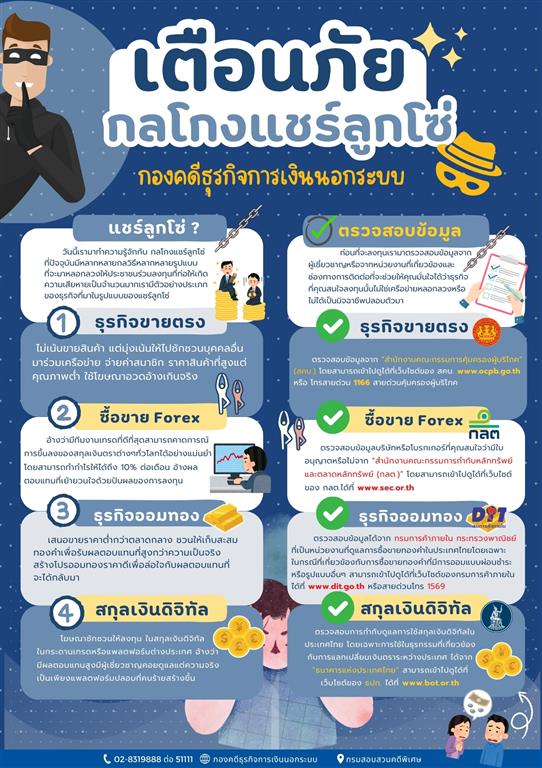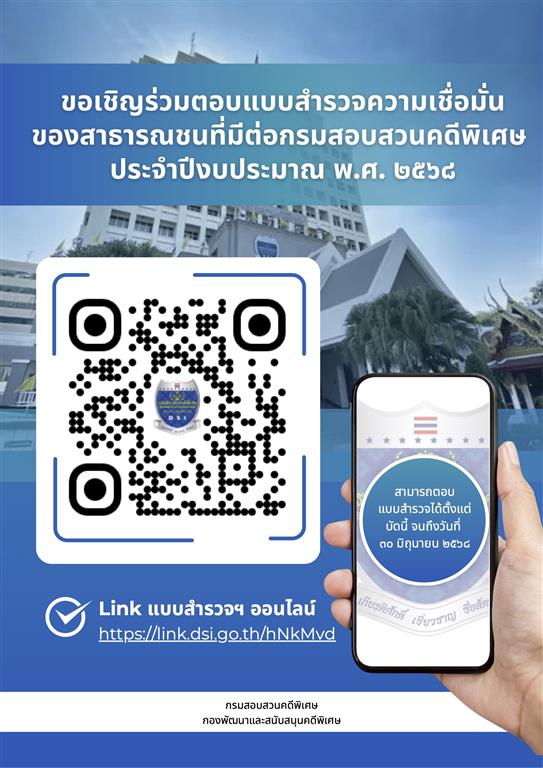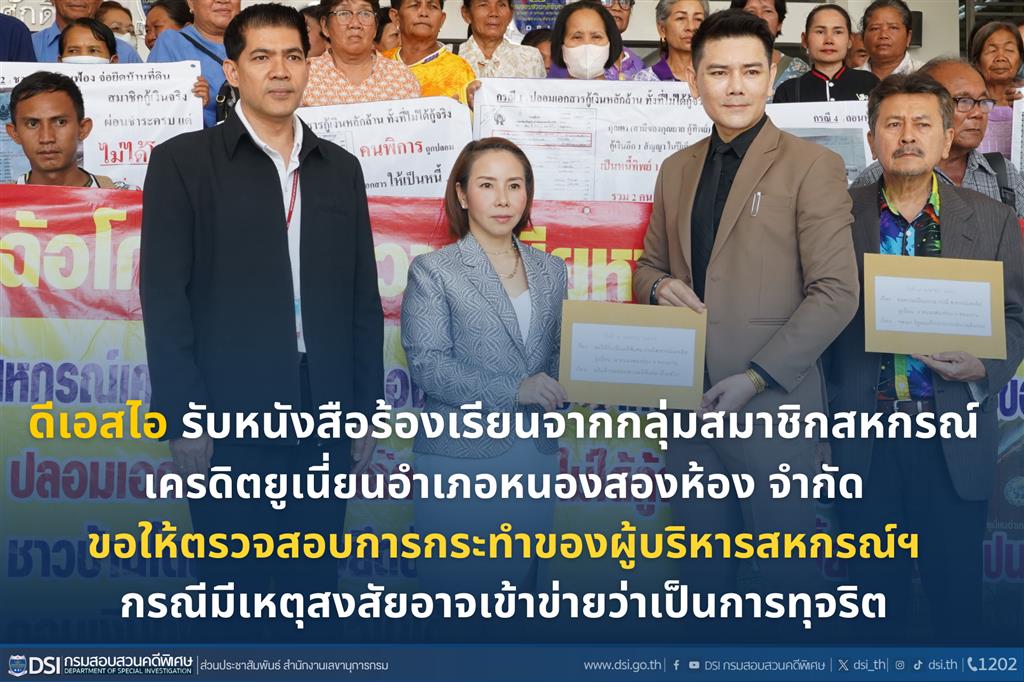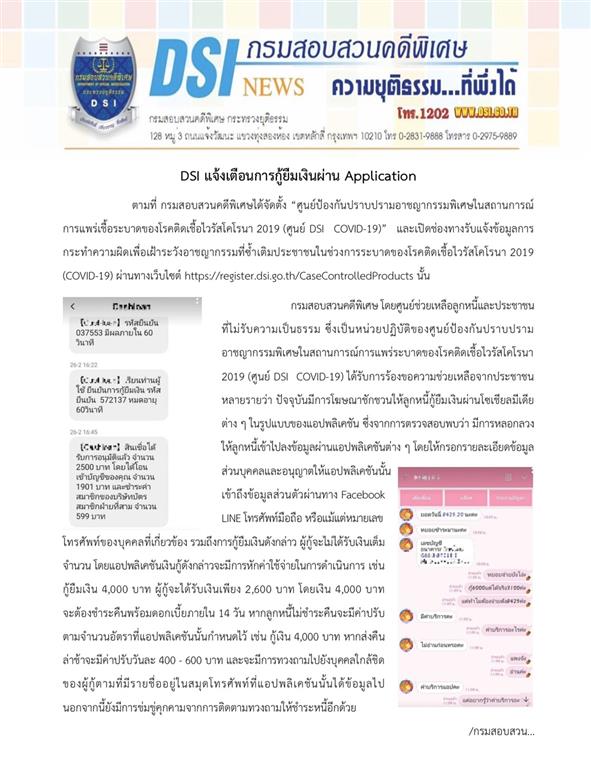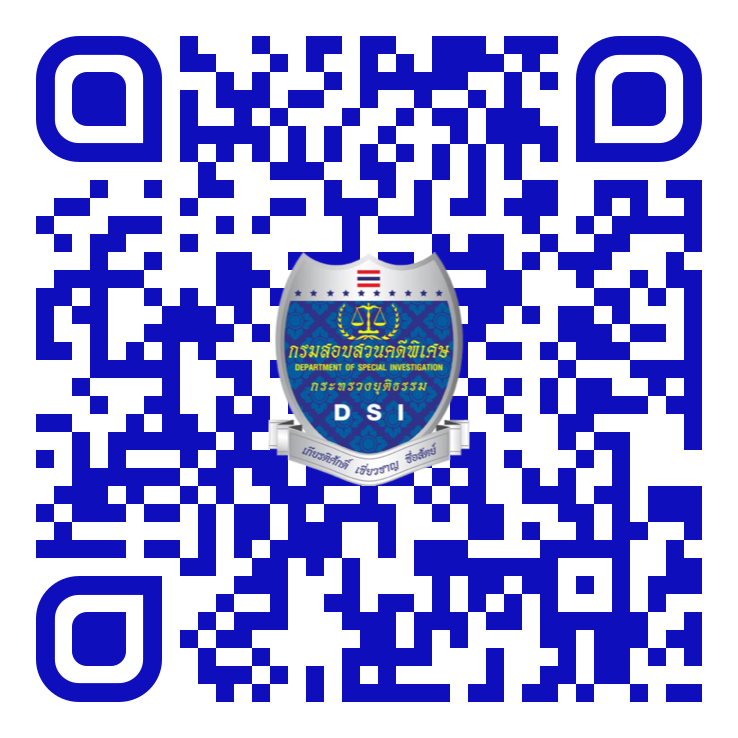DSI Welcomes Counter-Terrorism Policing (CTP) Officials from New Scotland Yard on a Counter-Terrorism Study Visit
published: 11/27/2024 10:40:20 AM updated: 11/28/2024 9:26:26 AM 3157 views
On Tuesday, November 26, 2024, the Director General of the Department of Special Investigation (DSI) assigned the Bureau of Foreign Affairs and Transnational Crime, represented by Mr. Somroek Tangkarawakhun, Deputy Director of the Bureau of Foreign Affairs and Transnational Crime, along with Police Major Suthottawat Areerattananakorn, Director of the Special Operations Bureau, and relevant officials, to welcome Superintendent Geoff Tachauer and Counter-Terrorism Policing (CTP) officers, New Scotland Yard, on the occasion of their study visit to the DSI. The Deputy Director of the Bureau of Foreign Affairs and Transnational Crime welcomed the delegation and expressed pleasure that CTP showed interest in DSI's mission. He emphasized the opportunity for information exchange between the agencies, strengthening cooperation and relationships between the agencies. The visiting delegation watched a video presentation introducing DSI, and representatives from the Bureau of Foreign Affairs and Transnational Crime gave a briefing on the structure and mission of their bureau, particularly regarding transnational crime and the operations of the Transnational Organized Crime Intelligence Center, which plays a role in supporting information and law enforcement to counter terrorism. Furthermore, they presented case examples of passport forgery related to terrorism support in Spain and DSI's preparedness in dealing with terrorism through participation in the Tempest Wind training program in collaboration with US and Thai security agencies.
Subsequently,
the Director of the Special Operations Bureau presented a video on the
structure and mission of the Special Operations Bureau and provided an overview
of tactical training exercises conducted with security agencies to prepare for
potential future terrorist incidents. The CTP delegation gave a presentation
about their organization and emphasized the changing nature of terrorist
threats in the United Kingdom. They highlighted a shift from large-scale
network attacks using high-tech weaponry to lone actors influenced by extremist
ideologies using readily available weapons such as knives or vehicles. The United
Kingdom has therefore adjusted its counter-terrorism strategy by emphasizing
collaboration between various agencies, both public and private, including
community engagement, particularly with Muslim communities who are often
accused of having links to terrorism. The delegation stressed the role of
independent advisory groups representing these communities in working with the
police to build trust and confidence between law enforcement and communities. These
advisory groups participate in providing advice, exchanging information, and
collaboratively planning strategies for preventing and countering terrorism. Additionally,
CTP emphasized the importance of proactive work, such as intervention before
individuals commit acts of terrorism, rehabilitation of former offenders, and
educating the public about the dangers of terrorism. This study visit provided
an opportunity for CTP and DSI to discuss issues regarding the spread of
security-threatening information on the internet, crime prevention in
communities, and counter-terrorism efforts, which require good community
relations to encourage people to report suspicious activities and international
cooperation to exchange information and coordinate in the fight against
terrorism.




